Most travelers who come to Ghana think about malaria and the possibility of getting sick or the healthcare system in Ghana. It will not surprise you that the most frequently asked question from guests visiting us at BWO Hostel is whether I have ever had malaria. This is immediately followed by whether I take malaria prophylaxis, and the third most common question is how I ended up in Banko, Ghana.
In this blog, you’ll find the answers to the first two questions as well as other malaria-related inquiries. Additionally, I will provide some tips on how to stay healthy during your trip to Ghana and what to do if you happen to fall ill.
I am not a doctor, so this blog is not a scientific article. However, I have over 20 years of experience in Ghana. I’ve had malaria and typhoid, given birth to two children, and undergone surgery in a fairly local hospital. Before traveling to Ghana, be sure to visit a doctor or a travel medicine clinic!
Have you ever had malaria?
Yes, many times. The first time was in 2001 when I was in Ghana for six months doing volunteer work. I was taking the prophylaxis Lariam but still contracted the disease. I should mention that I sometimes forgot to take the anti-malaria tablets and definitely did not take them at a fixed time every Wednesday. The last time I had malaria was this past April, just a few months ago.
You’ve been living in Ghana for years. Are you now immune to malaria?
No, unfortunately not. Malaria is caused by a parasite transmitted by a certain type of mosquito. You can read more about the medical side of it on Wikipedia. Nowadays, when I feel a certain type of pain or fatigue in my bones combined with a fever, I know what time it is. I can recognize the symptoms much quicker now, allowing me to start taking anti-malaria medication sooner, which usually means I don’t get very sick from it.
Do you get very sick from malaria?
This varies each time. Malaria doesn’t always come alone. If I’m already tired or have something else going on, I’m sicker than when I’m otherwise healthy. I’ve had malaria countless times and ended up in the hospital twice because of it. The last time I was hospitalized was almost ten years ago, and since then, I’ve had malaria many more times. But I take better care of myself now since I’m a mom and responsible for the kids.
Do you and your children take malaria prophylaxis?
No, you simply can’t take prophylaxis for years on end.
I’d prefer not to take prophylaxis when traveling to Ghana. What do you think?
This is one of the toughest questions to answer. Some people weigh their options and ultimately choose not to take anti-malaria tablets when they come to Ghana. I often understand this choice. However, the type of malaria most common in Ghana is malaria tropica, and if left untreated, it can be fatal. Some people get very sick and experience severe side effects. That’s something to consider.
On the other hand, there are adequate tests and good medication available in Ghana, even in remote areas. But you have to monitor yourself even more closely if you don’t take the prophylaxis. As mentioned, taking prophylaxis is not a guarantee that you won’t get malaria!
Be aware of the fact that you can get sick from malaria after your journey to Ghana as well. So in case of any illness after you return home, please inform your physician about your travel history!
Should I bring a mosquito net to Ghana?
It depends a bit on what you’re going to do, where you’re going, where you’ll be staying, and what time of year you’re visiting. Many accommodations for tourists have mosquito nets, including BWO Hostel. I often hear from travelers that they bought an expensive mosquito net but never took it out during their entire trip through Ghana. What a waste! My advice is not to bring one from Europe, but if you feel you need one when you’re here, buy it locally. That’s more sustainable and also cheaper for you.
How much DEET should I bring on my trip?
A 100 ml bottle of DEET will last about two weeks, so you can do the math! There is also anti-mosquito cream available in Ghana with a lower concentration of DEET. I find it very pleasant to use, it smells nice, and it doesn’t dry out the skin.
I got sick, help, what now?
Being sick is no fun. Let alone getting sick in Ghana. All those scary diseases in Africa! And are there even good hospitals and medicines available? In this part of my blog, I’ll tell you more about healthcare in Ghana and give some tips for when you unexpectedly get sick.
Healthcare in Ghana is pretty good!
The (stereotypical) image of healthcare in Africa is often quite bleak. Long travel times, extremely poor hygiene, no medication, and no well-trained medical personnel. It is definitely different here, that’s true. And when you look at some hospitals in Ghana through a Western lens, I can imagine you might be shocked.
But it’s not all doom and gloom. The healthcare staff is trained, there is generally sufficient medication, and there are excellent specialists. People here are also much better equipped to handle tropical diseases than in the West.
3 simple tips to prevent illness in Ghana
Of course, prevention is better than cure. But unfortunately, we can’t always be prepared and we can’t prevent everything. The following tips may seem obvious, but they are important!
- Make sure you drink enough, more than 2 liters of water per day. Do not drink tap water!
- Sometimes, due to the heat, it’s difficult to keep eating, but try to have three meals a day, especially when you are exerting yourself a lot.
- Take good care of wounds and try not to scratch mosquito bites open. Cover wounds during the day to prevent flies from landing on and getting into them. These flies, combined with the climate, can easily cause skin infections.
5 tips when you’re not feeling well in Ghana
- Don’t panic! Trust yourself and listen to your body. This is three tips in one. When you don’t feel well, a lot is happening not only in your body but often in your head too. The heat affects this, as does the lack of sleep. It’s very easy to let scary thoughts fill your mind. But it could also easily be that you have a cold, or that your intestines didn’t agree with the ingredients of a meal. Not every mosquito bite leads to malaria, and if you have diarrhea, you don’t have to be immediately afraid of dysentery.
- Try to keep eating and especially drinking. If you’re drinking pure water sachets, temporarily switch to bottled or boiled water.
- Check regularly for fever and whether your temperature fluctuates. This applies even if you are using malaria prophylaxis.
- Try to stay active. Take a walk if possible, try to take a shower. If you stay in bed, chances are your mind will run away with you. You’re far from home, your family, and your couch, which feels best when you’re not feeling well. Distracting yourself really helps!
- There are many local health centers in Ghana. Almost every village has one. And there are many regional hospitals too. You can go to these medical facilities without an appointment. Don’t wait too long to go. A simple lab test can rule out a lot and ensure that you start the right medication in time. Click here for a list of hospitals in Ghana, by district. The health centers you’ll find in almost every village are not on this list.
Are you sick in Ghana?
Feel free to contact me. I’m happy to help, by email, by phone, or in person! If you’re able to travel and not too far from us, my advice is to come to BWO Hostel!
Kirsten will tell you why!
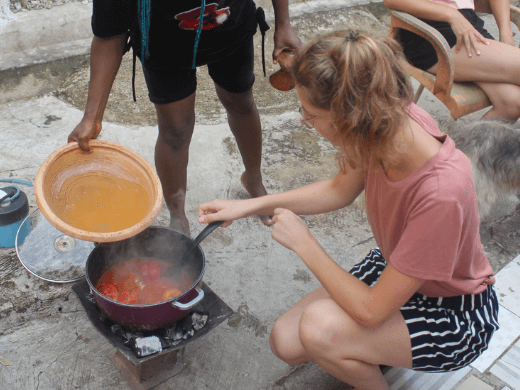
I’m really excited about BWO! Even before we arrived, Patricia was incredibly helpful. We booked the four-day Ashanti tour with her, which came with a free itinerary planning for our trip. Patricia always kept her promises and never forgot to send an email, even if it was months later. I have celiac disease and need to eat gluten-free, which I found quite nerve-wracking about my trip to Ghana. Patricia sent me a detailed document with information about food in Ghana, which made me feel better prepared. She also informed the staff at the hostels and guesthouses I was going to about gluten-free cooking.
Once we stayed at the hostel, every meal was a real treat. Patricia and her team were very creative with the food. Each course was a completely different dish made with local ingredients. It was fantastic for me to be able to enjoy it all without worry, and the food was absolutely delicious! We always looked forward to what the next meal would be :).
Unfortunately, I was sick during my stay at the guesthouse, but Patricia was very kind and a great help. She arranged for Ike to take me to a clinic and later a hospital and made sure the necessary medication was purchased. When I felt very ill, she talked to me until I was calm and got an extra fan for my room. Despite the situation, I was very glad I was staying at the guesthouse at that time. I was well taken care of, and the guesthouse terrace was a fantastic and beautiful place to relax and recover!
Luckily, I was still able to participate in the village tour and the hike to Prayer Mountain. We went with Ike, and it was incredibly fun. We could ask all sorts of questions, and it was just a great time. I also enjoyed the fufu workshop, and the barbecue was delicious! During our stay, Patricia made sure that the Ghanaian members of the BWO team were in the spotlight, allowing us to truly immerse ourselves in Ghanaian culture. Plus, all the staff were very friendly!
I think it’s pretty clear why I’m so enthusiastic about this place. I would recommend anyone going to Ghana to stop by!
Kirsten Veldman
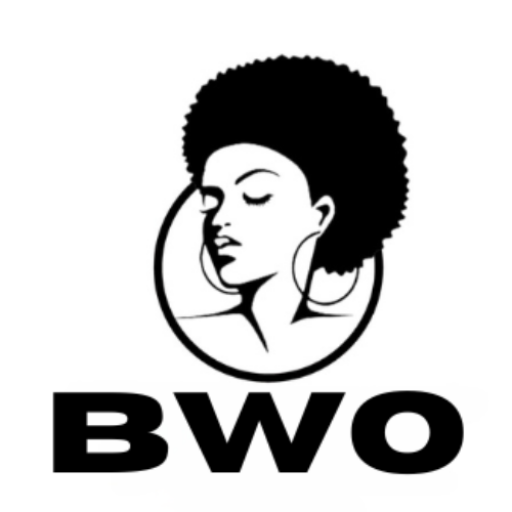
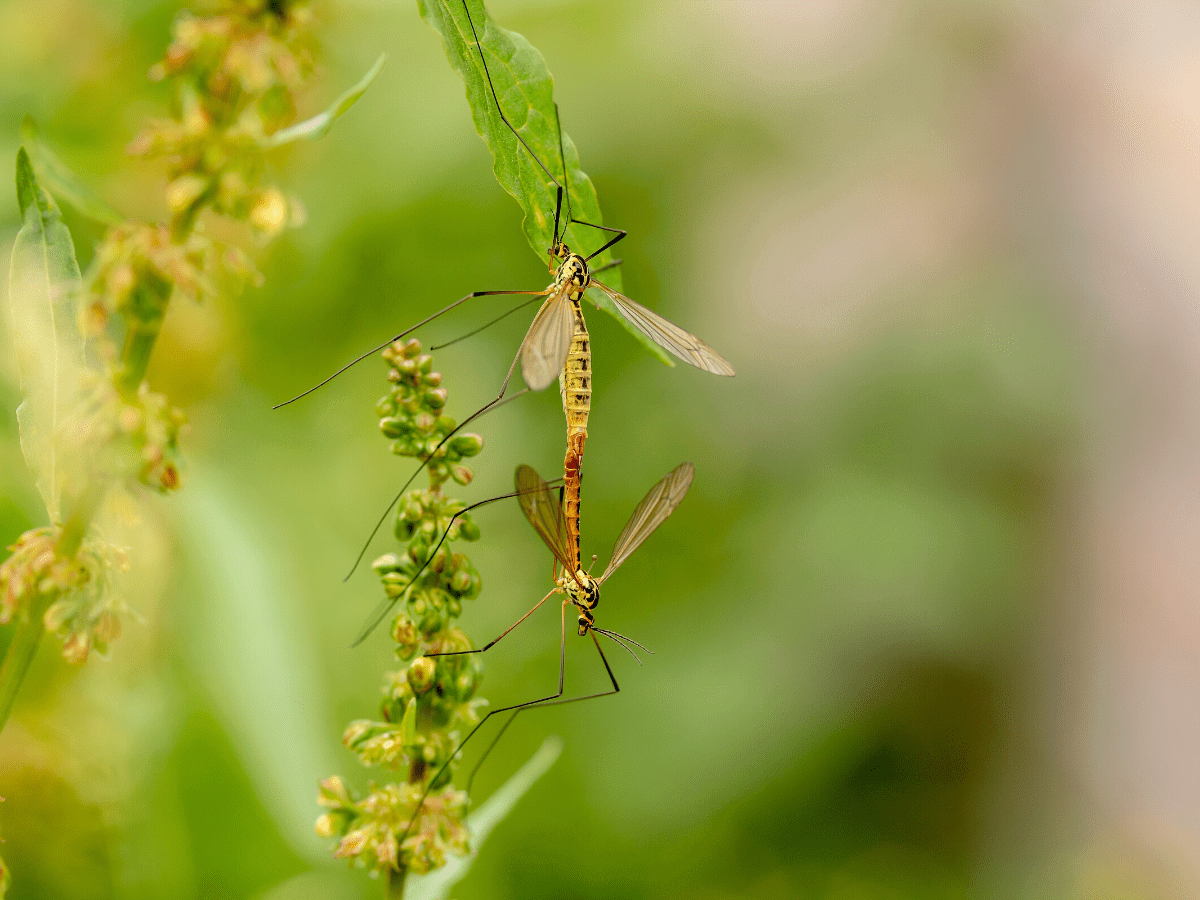
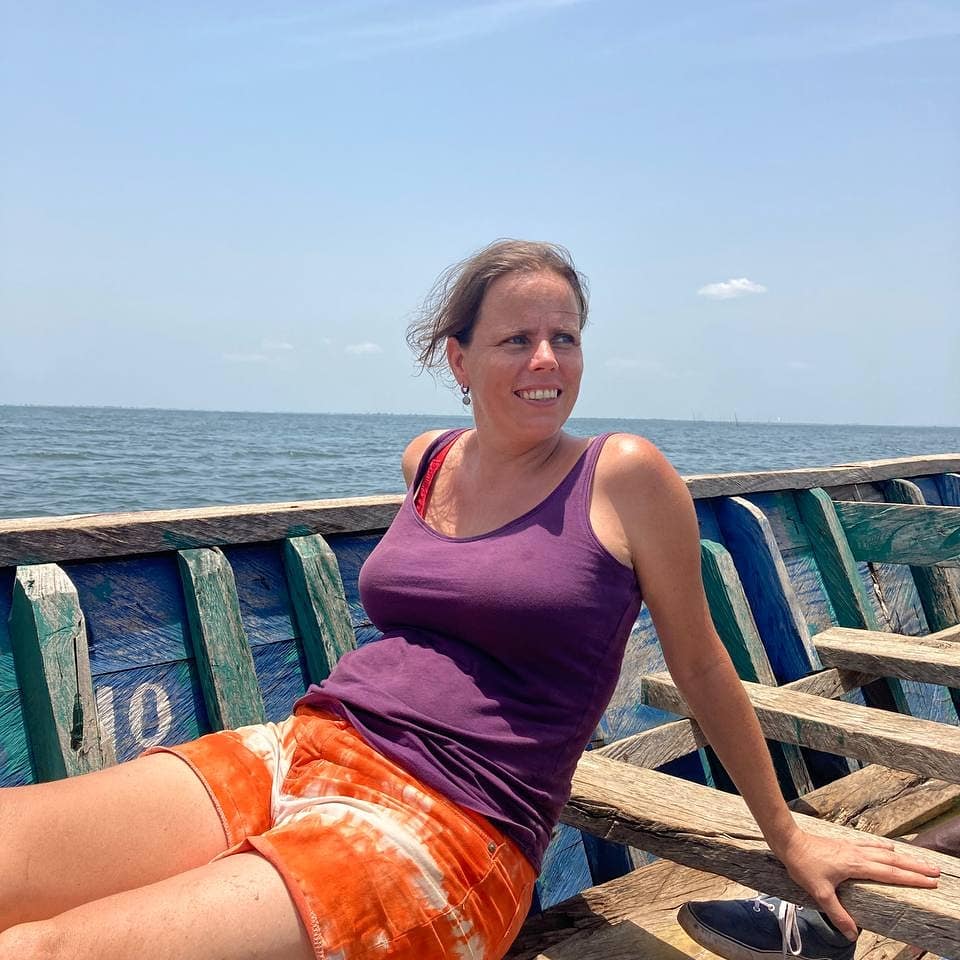

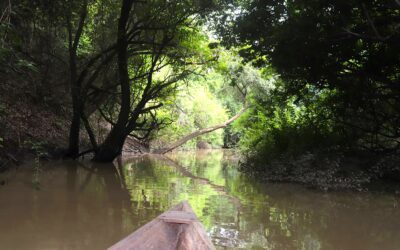
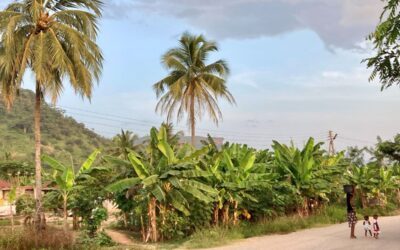
0 Comments